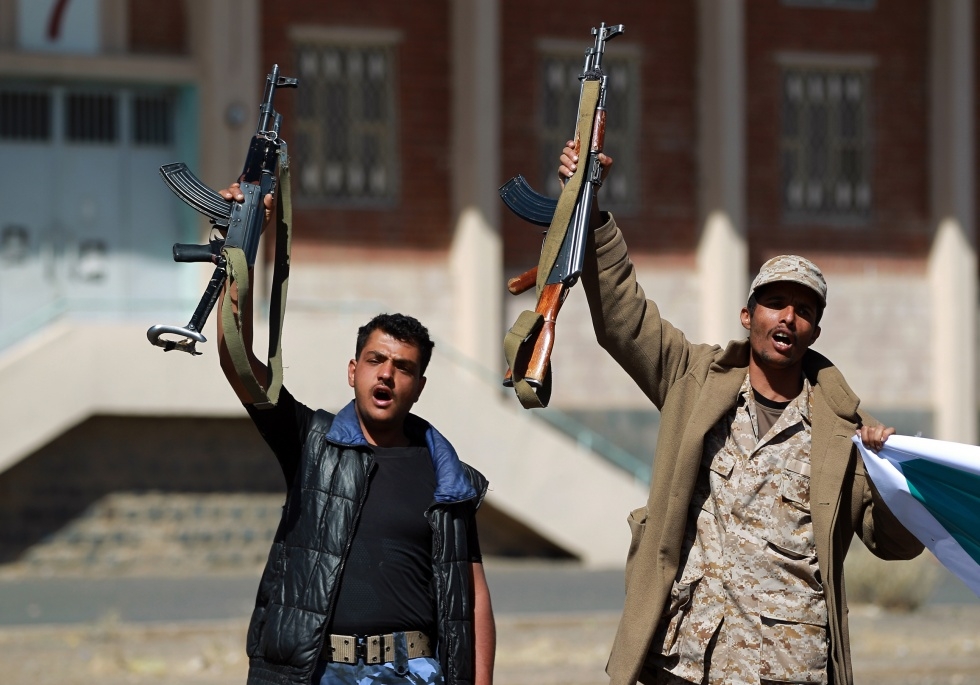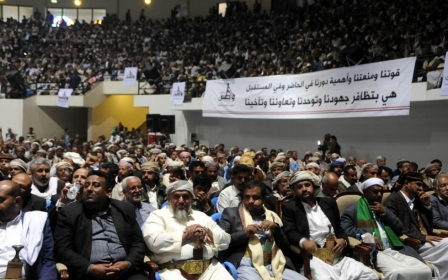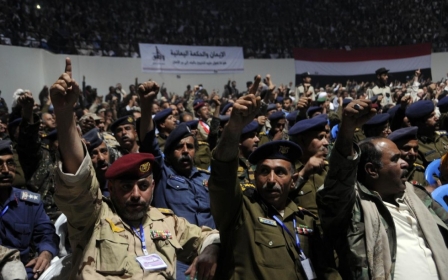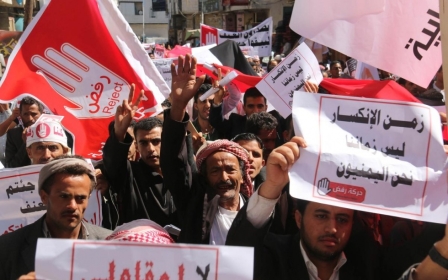Clashes erupt in Yemen as Houthi deadline passes

Tensions in Yemen remained at fever pitch on Wednesday as a three-day deadline set by Houthi rebel leaders for the establishment of a new government came and went without a breakthrough.
Clashes were reported in the central al-Bayda province, a local official told the Anadolu Agency, with five Houthis and three tribesmen reportedly killed in the fighting earlier today.
It remains unclear how the confrontations began. However, the official, who spoke on condition of anonymity, said the fighting had started after Houthis torched the homes of two local tribesmen.
Houthi leaders were not immediately available for comment, but the UN special envoy to Yemen Jamal Benomar warned that the situation was becoming “very serious”.
“Yemen is on the brink of collapse. If the situation is not contained, the country will enter a civil war,” Benomar told reporters after the Houthi-set deadline lapsed.
“For the first time in Yemen, we see the tribes embracing al-Qaeda members… While the only reason that the South has not seceded is due to the fragmentation of the Southern al-Hirak movement,” he added.
Yemen has been in crisis since September, when supporters of Yemen’s Shiite minority, known as the Houthis, marched on the capital Sanaa and demanded the resignation of the government, as well the continuation of economic subsidies.
While an UN-backed deal was agreed, tensions flared up again in January when Houthi fighters seized the presidential palace, and took a prime ministerial aid hostage.
After the ensuing clashes, Yemeni President Abd Rabbuh Mansur Hadi and the government resigned but a new interim authority has not yet been formed, despite Houthi pressure. It is as yet unclear what the Houthis, who last week held talks with supporters of former president Ali Abdullah Saleh’s party, will do next. All other political groups boycotted the discussions.
“Every party is viewing the issue from its own narrow perspective and seeking to serve its own interests,” Benomar said.
“I am a diplomat, and my primary mission is to assist the different political parties to reach solutions to problems and challenges, but what we are seeing are Yemeni political parties refusing to acknowledge their mistakes.”
The uncertainty has had a myriad of security ramification, with US defence officials telling the Guardian that the US had in recent weeks lost track of some of its weapons shipments that had been going to support the Hadi government.
The unrest has “limited our ability to conduct routine end-use monitoring checks and inspections we would normally perform,” a US defence official told the UK daily.
The anonymous source would not elaborate as to which equipment had specifically been unaccounted for, but he did say that the US has been selling or leasing equipment including helicopters, night-vision gear, surveillance equipment and military radios.
The Houthis have so far managed to spread their influence well beyond their traditional base in the north of the country, and have until now encountered relatively little resistance from Yemen’s army and security services – something opponents have blamed on Saleh’s lingering control over parts of the military.
However, last month, rumours began to circulate that the Houthis were trying to make inroads into the oil-rich Ma’rib region – a move that fuelled resentment among some of Yemen’s tribes and prompted tribal leaders to say that they would push back against growing Houthi influence.
New MEE newsletter: Jerusalem Dispatch
Sign up to get the latest insights and analysis on Israel-Palestine, alongside Turkey Unpacked and other MEE newsletters
Middle East Eye delivers independent and unrivalled coverage and analysis of the Middle East, North Africa and beyond. To learn more about republishing this content and the associated fees, please fill out this form. More about MEE can be found here.




